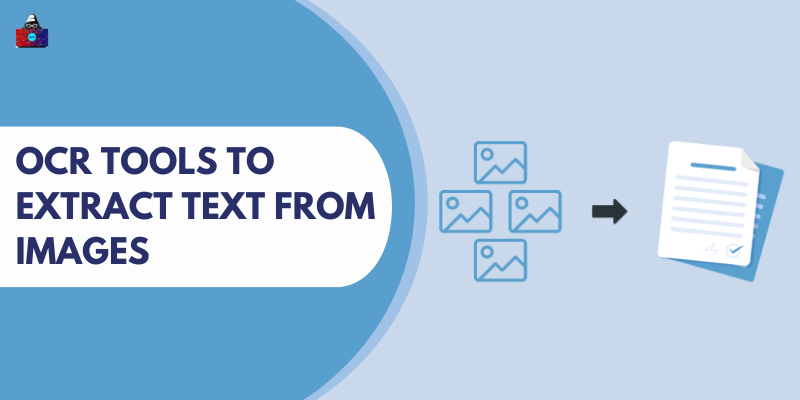Software engineering is a computer science field that is associated with software development. It entails the implementation of principles, procedures, and techniques in the development of software products that turn out ot be reliable and of high quality. In other words, software engineering is the process of applying engineering principles in the designing, development, testing, and maintenance of software products. And one who does this is a software engineer.
Often the terms software engineer and software developer are used interchangeably. However, both terms are different and have different duties to perform though they are involved in the software development process. While software engineers involve in the entire software development life cycle, software developers are only responsible for the development part of SDLC.
The role of software engineers in an organization is wide. In this blog, we shall thoroughly discuss what does a software engineer do. Before we get into the details, let's define what a software engineer is.
So, let us get started!
Who is a Software Engineer?
A software engineer is a specialist who uses their understanding of programming languages and software engineering principles to develop reliable software products. Alternatively, software engineers are professionals who design and develop application software and system software by implementing computer science principles and mathematical analysis.
Application software is a software program for accomplishing a specific task. Meanwhile, a system software is a computer program that manages system resources and provides a path for application software to operate on that system. It acts as a bridge between the system and the application software.
Generally, software engineers are problem-solvers, analytical thinkers, and strategically minded. They supervise the entire software development process, right from requirements analysis to deployment and maintenance. As a result, software engineers possess sound knowledge of software development, programming languages, operating systems, and software engineering principles.
Types of Software Engineers
There are two types of software engineers: Application software engineers and System software engineers.
-
Application Software Engineers
An application software engineer is an individual who is in charge of comprehending and analyzing end users’ requirements and building software products for businesses or organizations.
-
System Software Engineers
A system software engineer is a person who is responsible for the creation and maintenance of an organization or business’s computer systems. In addition, they are in charge of coordinating with the needs of all the departments of an organization, providing technical support, and setting up and managing the network that connects all the computer systems.
What Does a Software Engineer Do?
Typically, while developing software products, software engineers first choose the appropriate programming languages, platforms, and architectures. From basic computer games and programs to operating systems and network control systems, they are capable of doing it all. In addition to designing and creating software products, their duties also include testing, improving, and maintaining those created by other engineers.
The role of software engineers is broad, and hence, they need to possess an array of skills. Also, they have to stay up with the latest technological trends.
Here are some of the basic duties of a software engineer in every organization:
- Designing and maintaining software systems.
- Assessing or testing new software systems.
- Improving software products for speed and performance.
- Writing and testing code.
- Collaborating with clients, stakeholders, security specialists, and other engineers.
- Proposing new features to clients and stakeholders.
As discussed above, there are two categories of software engineers: Application software engineers and System software engineers. As a result, each sort of software developer has different duties and obligations. However, both categories continue to share the aforementioned duties.
Now, let's shed light on each type of software engineer's duties or everyday tasks.
Application Software Engineers
These software engineers prioritize the needs of the customers. They assess and comprehend the client's needs, then deliver the software program in accordance with those needs. They participate in the development of an application's client-side (front-end) and server-side (back-end). The duties of application software engineers are as follows:
- Creating software applications for Android, iOS, Windows, and other platforms.
- Analyzing the software requirements
- Modifying the software product in accordance with the client’s requirements.
- Releasing software updates regularly.
Who They Work With?
Application software engineers work with project managers, graphics designers, customer success staff, and marketers.
System Software Engineers
These software engineers are in charge of developing systems on which the front-end or user-facing applications will operate. They involve themselves mostly in the back-end development. Some of the significant everyday tasks of system software engineers include:
- Developing networks and operating systems for user-facing applications.
- Making sure that all software applications communicate with each other on a single platform.
- Establishing and enforcing IT standards within an organization.
- Keeping up with the latest technology.
- The maintenance of documents pertaining to IT systems.
- Serving as system architects and general IT managers.
- In charge of both hardware and software requirements.
Who They Work With?
System software engineers generally collaborate with data science professionals, senior system architects, senior management, and the development team.
Why Should You Choose to Become a Software Engineer?
The job role of a software engineer is for someone who possesses strong analytical skills, enjoys problem-solving, and is open to learning new technology. Also, you must be knowledgeable in a variety of areas, such as software engineering, programming languages, and software development, in order to be a successful software engineer.
There is an immense need for software developers in the market today as technology continues to grow rapidly. As a result, if you choose to pursue a career in the software engineering field, you will find a plethora of alternatives in various fields, owing to the fact that most businesses leverage software products for their operations. From finance and entertainment to sports and real estate, you will find great opportunities in every industry vertical as a software engineer.
Software Engineering Salary
As the duties of software engineers are challenging, and they have to possess knowledge in wide areas, they are among the highest-paying IT job roles. The following table provides insights into the average salary of software engineers in different countries:
|
Country |
Salary Per Annum |
|
India |
?7 L |
|
United States |
$1.1 L |
|
The United Kingdom |
£45 K |
|
Germany |
€60 K |
|
Canada |
CA$85 K |
|
France |
€43 K |
|
Australia |
AU$1 L |
Software Engineer Career Paths
As there are two categories of software engineers, you can choose any one of them as per your interest and skill set. Once you choose your path and gain some experience, you can think of advancing your role to senior software engineer, systems manager, or project manager. To do so, you can consider pursuing certifications aligned to the role you decide to advance.
Software engineering is not limited to just the aforementioned roles. Instead, you will find many other roles, including application architects, quality assurance analysts, mobile developers, and database administrators.
How to Become a Software Engineer?
To become a software engineer, you must first acquire all the necessary technical and professional abilities. As you will be designing and developing software products, along with some other professionals in the team, technical as well as interpersonal skills are mandatory. The following abilities should be your main emphasis to develop:
- Programming languages, such as C, C++, Java, Python, Scala, and other popular ones.
- Operating systems
- Data structures and algorithms
- Source or version control
- Databases and database architecture
- Testing and debugging
- Cloud computing
- Communication skills
- Attention to detail
- Team player
You can check out here: Essential Software Engineer Skills
Software Engineer Certifications
Most companies prefer applicants holding a bachelor’s degree in computer science or relevant fields, such as information technology and math-related degrees. In addition, some jobs may require you to hold certain certifications to validate your skills. So, it is better to go with certifications.
Here are some common certification options you can choose from to demonstrate your skills in software engineering:
Offered by: IEEE Computer Security
This certification validates your knowledge in four areas: Software Engineering Requirements, Software Engineering Design, Software Engineering Construction, and Software Engineering Testing. There are 160 questions in the certification exam, which lasts for three hours.
Offered by: The International Information System Security Certification Consortium (ISC)²
This certification demonstrates your expertise in applying security practices in all the phases of SDLC. Through this certification, you can showcase your knowledge in authentication, auditing, and authorization throughout SDLC by employing (ISC)² security policies and procedures.
Offered by:
This certification is an ideal choice for individuals wishing to shape their careers in web and IT technologies. After you earn this certification, you will possess knowledge of front-end and backend technologies and technologies used to integrate front-end and back-end with databases. In addition, this certification requires you first to earn three different certifications as follows:
- CIW JavaScript Specialist
- CIW Database Design Specialist
- CIW Advanced HTML5 & CSS3 Specialist
Do you aim to become a software engineer? Check out here to know how to become the one.
Conclusion
In addition to the IT sector, other business verticals such as governmental organizations, healthcare institutions, and transportation and logistics firms also need qualified software engineers. Software engineers use their understanding of programming languages and software engineering to play a crucial part in the planning, designing, deployment, and maintenance of software programs.
Therefore, if you intend to work as a software engineer, be sure to acquire all the necessary abilities, get a bachelor's degree in computer science or a related field, and obtain certification to boost your credibility.
People are also reading:





Leave a Comment on this Post